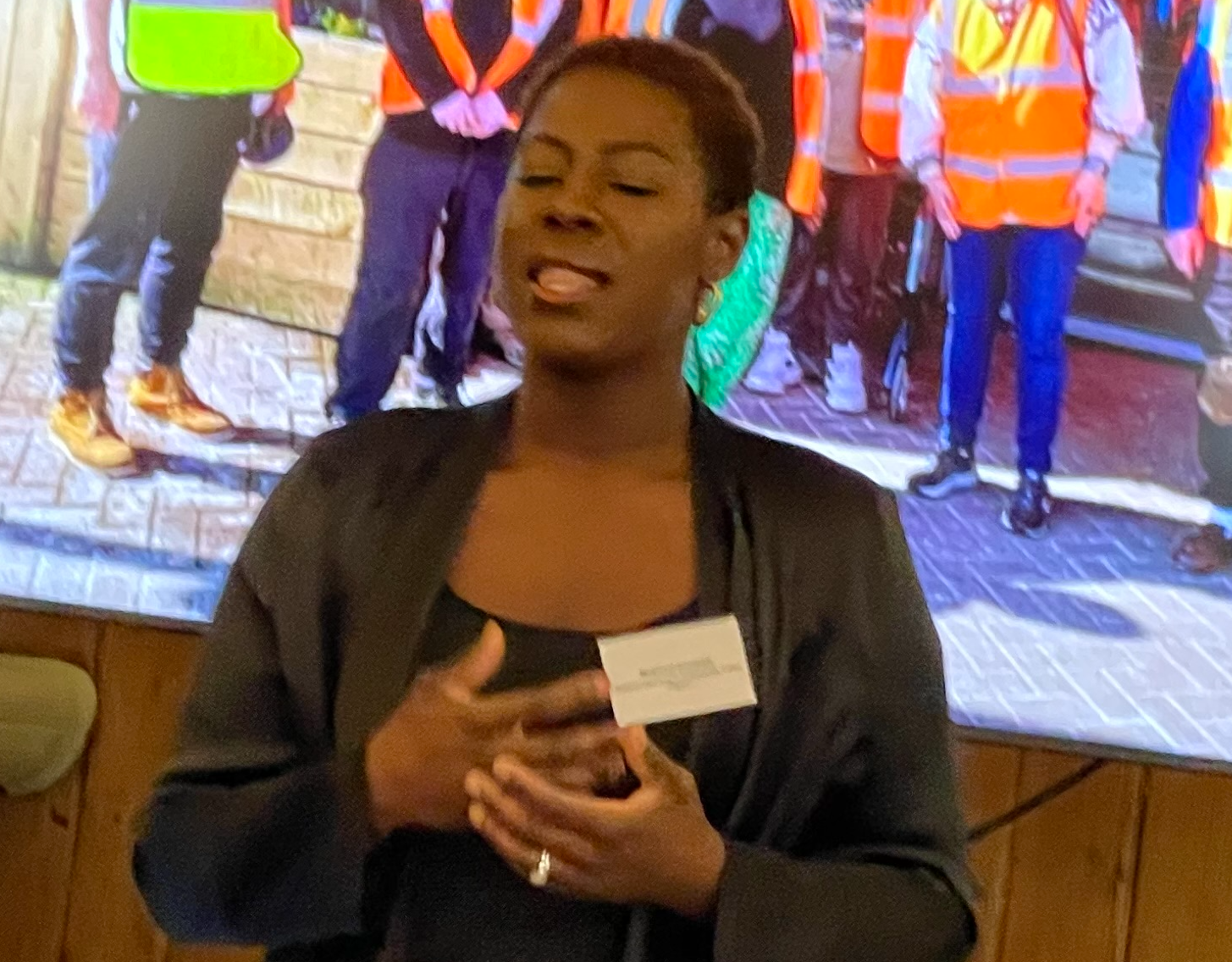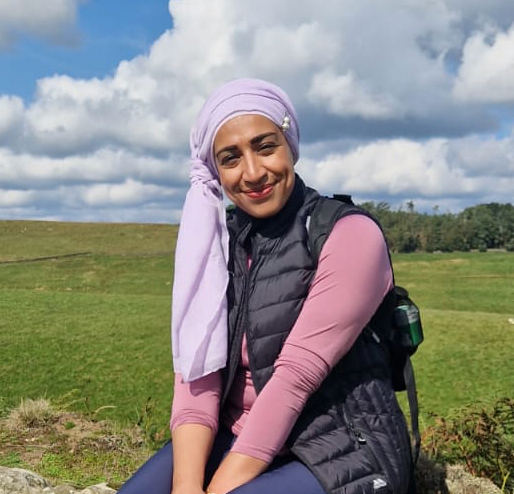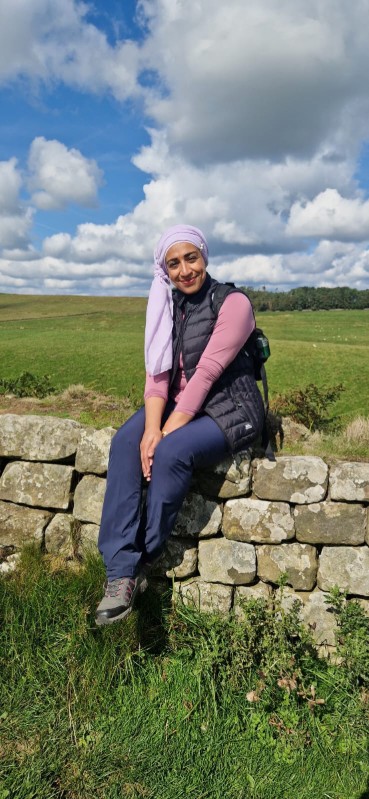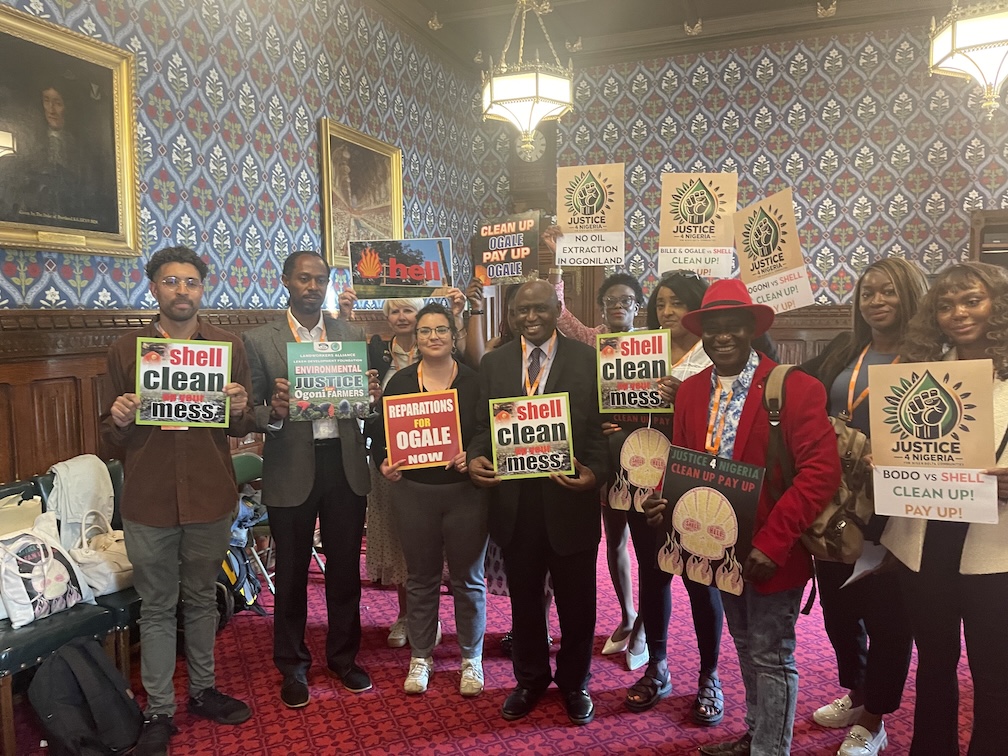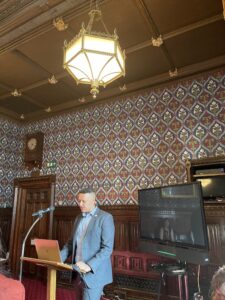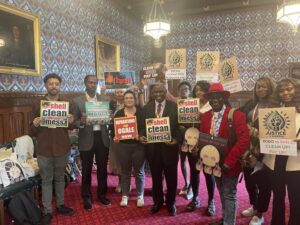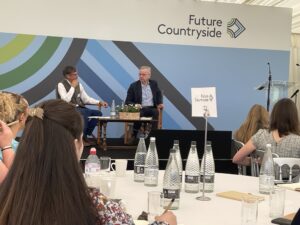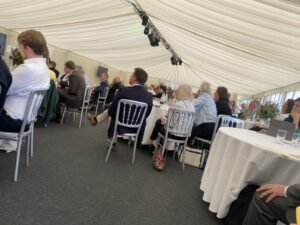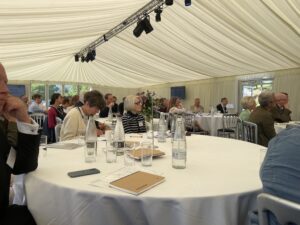Derbyshire Wildlife Trust Wilder 2030 Strategy Launch
SEM CEO Maxwell Ayamba BEM, attended the launch of Derbyshire’s Wildlife Trust’s ‘Wilder 20230 Strategy” at Chatsworth House, June 4, 2025. The Trust has been taking part in The RACE Report survey among environmental and conservation organisations and published its annual diversity report. The environment and conservation sectors are amongst the least diverse sectors in the UK. It is against this background that The RACE Report was created as a sector wide initiative to focus on charities and funders working on environmental and conservation issues. The report highlights the need for greater representation, diversity and inclusion in sustainability and climate action, as currently, the sector sits at just 4.5% representation of black and ethnic minorities, compared to 16% for the UK working population, an indication that racial inclusion is a major issue in the sector.

Beatrice Anomah, Project Manager of The RACE Report and of Students Organising for Sustainability UK (SOS-UK) who was invited to speak at the Wilder2030 launch said, ‘It’s really important that we don’t just identify this but also identify what policies, strategies and actions on racial inclusion and equity is being taken within the sector. Spotlight and share where good practice and ensure we can support and take organisations on a collaborative journey to co-create more representative, inclusive and equitable organisations that in turn lead to a more inclusive sector and supports transition to a more just world’.
She was of the view that there is a need for a holistic and intersectional approach to inclusion in the environment and conservation sectors. This is why the race conversation matters so much. ‘We cannot create an inclusive sector if the myriads of experiences of marginalised groups are not represented, understood, or are simply homogenised and not reflected in the key spaces where decisions are made, money is distributed, and policies are written’.
The Project Manager argued that there was a need to look at the policies, systems, language etc that create barriers for people of colour entering and thriving in the sector and catalyse meaningful collective action and commitment from different stakeholders to tackle those barriers and this requires a whole sector effort. She pointed out that individual Wildlife Trusts such as the Derbyshire Wildlife Trust are often bigger environmental charities better known by the general public, so the work they do on inclusion and diversity is super important for role modelling, setting the pace, and having an influence on the general public’s perceptions of the sector.
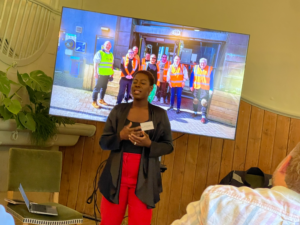
Diversity is the reality of our world and there’s so much power in ensuring that it is reflected in the sector and inclusion will only make the sector stronger, more dynamic, more resilient and more beautiful and that is because of the following reasons:
· The climate crises is a social justice and racial justice crises
· Climate justice cannot be achieved without racial justice and decolonisation
· An intersectional and holistic approach to creating solutions and changing systems is vital
· Increasing the diversity of the sector requires individual and collective action by all organisations in the environment/conservation sector
· Understanding the different experiences of historically marginalised groups and working directly with these groups is necessary for an equitable and inclusive sectors
· Participation in The RACE Report will help the environment/conservation sector be better represented and include the diverse communities that it serves and achieve equitable environmental outcomes
· Being a diverse and inclusive organisation builds resilience, increases impact, ensures work is fit for purpose for all people and nature.
She concluded that, in The RACE Report’s annual feedback survey, over 82% of respondents now take more action on EDI as a direct result of taking part, with organisations saying: We are able to align ourselves with sector best practices and compare our year-on-year data. We’ve been able to spot gaps in our representation and make data-informed decisions. It has been a key part of the puzzle for us in setting our own representation targets.
SEM’s CEO Maxwell Ayamba BEM noted that environment/conservation organisations stand to benefit from The RACE Report, as biodiversity is also about human-diversity.
